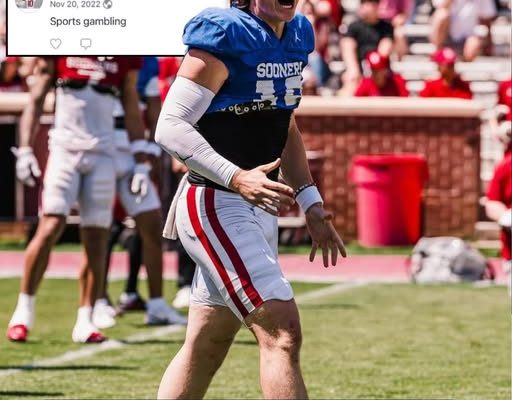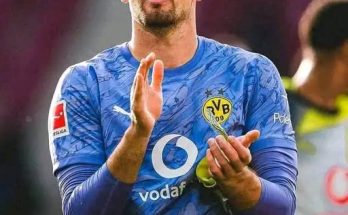In the world of college athletics, where amateurism is strictly enforced by the NCAA, any association with sports gambling can lead to serious consequences. Recently, an Oklahoma Sooners quarterback found himself at the center of controversy after public Venmo transactions labeled “sports gambling” surfaced online. The discovery has raised questions about potential NCAA violations, the athlete’s eligibility, and the broader issue of gambling among college athletes.
## **The Discovery of Suspicious Transactions**
Venmo, a popular peer-to-peer payment app, allows users to send and receive money with descriptions attached to each transaction. While most transactions are private, users can choose to make them public, visible to anyone on the platform. In this case, the Sooners quarterback had multiple transactions labeled with phrases like “sports gambling,” “bet payout,” and other gambling-related terms.
These transactions were first noticed by fans and later circulated on social media, prompting immediate speculation. Given the NCAA’s strict rules against athletes participating in sports betting, the situation quickly gained traction. If verified, these transactions could result in severe penalties, including suspension or loss of eligibility.
## **NCAA Rules on Sports Gambling**
The NCAA has a zero-tolerance policy when it comes to athletes gambling on sports. According to NCAA Bylaw 10.3, student-athletes are prohibited from:
– Betting on any sport sponsored by the NCAA at any level (college, professional, etc.).
– Providing information to gamblers that could influence betting outcomes.
– Participating in any form of sports wagering, including fantasy sports with entry fees and prizes.
Violations can lead to suspensions, permanent ineligibility, and even repercussions for the entire team if the athlete in question participated in games while in violation of the rules.
## **Potential Consequences for the Oklahoma Sooners QB**
If the Venmo transactions are confirmed to be related to sports gambling, the quarterback could face several outcomes:
1. **Suspension** – The NCAA may impose a temporary suspension while investigating the matter.
2. **Loss of Eligibility** – In severe cases, the player could be deemed permanently ineligible.
3. **Team Penalties** – If the athlete participated in games while violating gambling rules, the NCAA could force the team to vacate wins.
4. **Reputation Damage** – Beyond NCAA sanctions, the player’s public image and future prospects (including potential NFL opportunities) could be affected.
## **University and NCAA Response**
The University of Oklahoma has not yet released an official statement, but it is expected that both the school and the NCAA will launch an investigation. The quarterback’s Venmo activity will likely be scrutinized, and he may be required to provide explanations for the transactions.
In recent years, the NCAA has taken a hard stance against gambling, particularly with the rise of legalized sports betting across the U.S. Several college athletes have faced suspensions for betting-related violations, including Iowa and Iowa State athletes who were suspended in 2023 for similar issues.
## **Broader Implications for College Sports**
This incident highlights the growing challenge of monitoring athletes in an era where digital transactions and online betting are easily accessible. Many athletes may not realize that even casual betting—such as small wagers among friends—can still violate NCAA rules.
Additionally, the rise of Name, Image, and Likeness (NIL) deals has blurred the lines between amateur and professional behavior. While athletes can now profit from endorsements, gambling remains strictly off-limits. Schools may need to implement stronger education programs to ensure athletes understand the risks.
The Oklahoma Sooners quarterback’s public Venmo transactions labeled “sports gambling” have put his collegiate career in jeopardy. As the NCAA investigates, the case serves as a reminder of the strict gambling policies in college sports and the potential consequences of violating them. Whether the transactions were harmless exchanges or actual bets, the situation underscores the need for greater awareness and compliance among student-athletes.
The outcome of this investigation could set a precedent for how similar cases are handled in the future, especially as sports betting becomes more mainstream. For now, the quarterback, the team, and fans must wait for an official ruling—one that could significantly impact the upcoming season.



